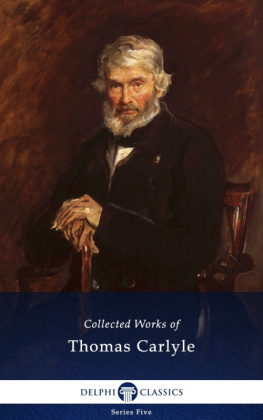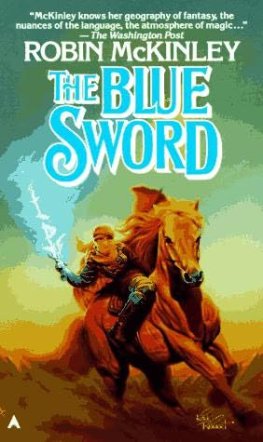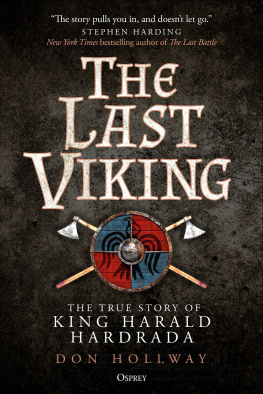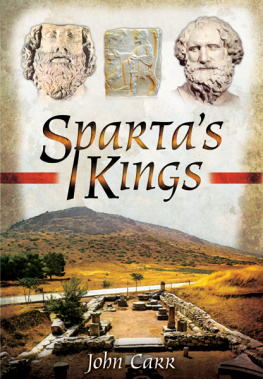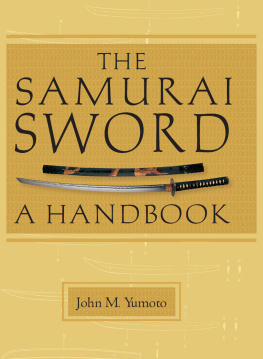Thomas Carlyle - Early Kings of Norway
Here you can read online Thomas Carlyle - Early Kings of Norway full text of the book (entire story) in english for free. Download pdf and epub, get meaning, cover and reviews about this ebook. year: 2015, publisher: Sagwan Press, genre: Art. Description of the work, (preface) as well as reviews are available. Best literature library LitArk.com created for fans of good reading and offers a wide selection of genres:
Romance novel
Science fiction
Adventure
Detective
Science
History
Home and family
Prose
Art
Politics
Computer
Non-fiction
Religion
Business
Children
Humor
Choose a favorite category and find really read worthwhile books. Enjoy immersion in the world of imagination, feel the emotions of the characters or learn something new for yourself, make an fascinating discovery.

- Book:Early Kings of Norway
- Author:
- Publisher:Sagwan Press
- Genre:
- Year:2015
- Rating:3 / 5
- Favourites:Add to favourites
- Your mark:
- 60
- 1
- 2
- 3
- 4
- 5
Early Kings of Norway: summary, description and annotation
We offer to read an annotation, description, summary or preface (depends on what the author of the book "Early Kings of Norway" wrote himself). If you haven't found the necessary information about the book — write in the comments, we will try to find it.
Early Kings of Norway — read online for free the complete book (whole text) full work
Below is the text of the book, divided by pages. System saving the place of the last page read, allows you to conveniently read the book "Early Kings of Norway" online for free, without having to search again every time where you left off. Put a bookmark, and you can go to the page where you finished reading at any time.
Font size:
Interval:
Bookmark:
EARLY KINGS OF NORWAY. by Thomas Carlyle The Icelanders, in their long winter, had a great habit of writing; and were, and still are, excellent in penmanship, says Dahlmann. It is to this fact, that any little history there is of the Norse Kings and their old tragedies, crimes and heroisms, is almost all due. The Icelanders, it seems, not only made beautiful letters on their paper or parchment, but were laudably observant and desirous of accuracy; and have left us such a collection of narratives (_Sagas_, literally "Says") as, for quantity and quality, is unexampled among rude nations. Snorro Sturleson's History of the Norse Kings is built out of these old Sagas; and has in it a great deal of poetic fire, not a little faithful sagacity applied in sifting and adjusting these old Sagas; and, in a word, deserves, were it once well edited, furnished with accurate maps, chronological summaries, &c., to be reckoned among the great history-books of the world. It is from these sources, greatly aided by accurate, learned and unwearied Dahlmann,[1] the German Professor, that the following rough notes of the early Norway Kings are hastily thrown together.
In Histories of England (Rapin's excepted) next to nothing has been shown of the many and strong threads of connection between English affairs and Norse. CHAPTER I. HARALD HAARFAGR. Till about the Year of Grace 860 there were no kings in Norway, nothing but numerous jarls,--essentially kinglets, each presiding over a kind of republican or parliamentary little territory; generally striving each to be on some terms of human neighborhood with those about him, but,--in spite of "_Fylke Things_" (Folk Things, little parish parliaments), and small combinations of these, which had gradually formed themselves,--often reduced to the unhappy state of quarrel with them. Harald Haarfagr was the first to put an end to this state of things, and become memorable and profitable to his country by uniting it under one head and making a kingdom of it; which it has continued to be ever since. His father, Halfdan the Black, had already begun this rough but salutary process,--inspired by the cupidities and instincts, by the faculties and opportunities, which the good genius of this world, beneficent often enough under savage forms, and diligent at all times to diminish anarchy as the world's worst savagery, usually appoints in such cases,--conquest, hard fighting, followed by wise guidance of the conquered;--but it was Harald the Fairhaired, his son, who conspicuously carried it on and completed it.
Harald's birth-year, death-year, and chronology in general, are known only by inference and computation; but, by the latest reckoning, he died about the year 933 of our era, a man of eighty-three. The business of conquest lasted Harald about twelve years (A.D. 860-872?), in which he subdued also the vikings of the out-islands, Orkneys, Shetlands, Hebrides, and Man. Sixty more years were given him to consolidate and regulate what he had conquered, which he did with great judgment, industry and success. His reign altogether is counted to have been of over seventy years. The beginning of his great adventure was of a romantic character.--youthful love for the beautiful Gyda, a then glorious and famous young lady of those regions, whom the young Harald aspired to marry.
Gyda answered his embassy and prayer in a distant, lofty manner: "Her it would not beseem to wed any Jarl or poor creature of that kind; let him do as Gorm of Denmark, Eric of Sweden, Egbert of England, and others had done,--subdue into peace and regulation the confused, contentious bits of jarls round him, and become a king; then, perhaps, she might think of his proposal: till then, not." Harald was struck with this proud answer, which rendered Gyda tenfold more desirable to him. He vowed to let his hair grow, never to cut or even to comb it till this feat were done, and the peerless Gyda his own. He proceeded accordingly to conquer, in fierce battle, a Jarl or two every year, and, at the end of twelve years, had his unkempt (and almost unimaginable) head of hair clipt off,--Jarl Rognwald (_Reginald_) of More, the most valued and valuable of all his subject-jarls, being promoted to this sublime barber function;--after which King Harald, with head thoroughly cleaned, and hair grown, or growing again to the luxuriant beauty that had no equal in his day, brought home his Gyda, and made her the brightest queen in all the north. He had after her, in succession, or perhaps even simultaneously in some cases, at least six other wives; and by Gyda herself one daughter and four sons. Harald was not to be considered a strict-living man, and he had a great deal of trouble, as we shall see, with the tumultuous ambition of his sons; but he managed his government, aided by Jarl Rognwald and others, in a large, quietly potent, and successful manner; and it lasted in this royal form till his death, after sixty years of it. These were the times of Norse colonization; proud Norsemen flying into other lands, to freer scenes,--to Iceland, to the Faroe Islands, which were hitherto quite vacant (tenanted only by some mournful hermit, Irish Christian _fakir_, or so); still more copiously to the Orkney and Shetland Isles, the Hebrides and other countries where Norse squatters and settlers already were.
Settlement of Iceland, we say; settlement of the Faroe Islands, and, by far the notablest of all, settlement of Normandy by Rolf the Ganger (A.D. 876?).[2] Rolf, son of Rognwald,[3] was lord of three little islets far north, near the Fjord of Folden, called the Three Vigten Islands; but his chief means of living was that of sea robbery; which, or at least Rolf's conduct in which, Harald did not approve of. In the Court of Harald, sea-robbery was strictly forbidden as between Harald's own countries, but as against foreign countries it continued to be the one profession for a gentleman; thus, I read, Harald's own chief son, King Eric that afterwards was, had been at sea in such employments ever since his twelfth year. Rolf's crime, however, was that in coming home from one of these expeditions, his crew having fallen short of victual, Rolf landed with them on the shore of Norway, and in his strait, drove in some cattle there (a crime by law) and proceeded to kill and eat; which, in a little while, he heard that King Harald was on foot to inquire into and punish; whereupon Rolf the Ganger speedily got into his ships again, got to the coast of France with his sea robbers, got infeftment by the poor King of France in the fruitful, shaggy desert which is since called Normandy, land of the Northmen; and there, gradually felling the forests, banking the rivers, tilling the fields, became, during the next two centuries, Wilhelmus Conquaestor, the man famous to England, and momentous at this day, not to England alone, but to all speakers of the English tongue, now spread from side to side of the world in a wonderful degree. Tancred of Hauteville and his Italian Normans, though important too, in Italy, are not worth naming in comparison. This is a feracious earth, and the grain of mustard-seed will grow to miraculous extent in some cases.
Harald's chief helper, counsellor, and lieutenant was the above-mentioned Jarl Rognwald of More, who had the honor to cut Harald's dreadful head of hair. This Rognwald was father of Turf-Einar, who first invented peat in the Orkneys, finding the wood all gone there; and is remembered to this day. Einar, being come to these islands by King Harald's permission, to see what he could do in them,--islands inhabited by what miscellany of Picts, Scots, Norse squatters we do not know,--found the indispensable fuel all wasted. Turf-Einar too may be regarded as a benefactor to his kind. He was, it appears, a bastard; and got no coddling from his father, who disliked him, partly perhaps, because "he was ugly and blind of an eye,"--got no flattering even on his conquest of the Orkneys and invention of peat. Here is the parting speech his father made to him on fitting him out with a "long-ship" (ship of war, "dragon-ship," ancient seventy-four), and sending him forth to make a living for himself in the world: "It were best if thou never camest back, for I have small hope that thy people will have honor by thee; thy mother's kin throughout is slavish." Harald Haarfagr had a good many sons and daughters; the daughters he married mostly to jarls of due merit who were loyal to him; with the sons, as remarked above, he had a great deal of trouble.
Next pageFont size:
Interval:
Bookmark:
Similar books «Early Kings of Norway»
Look at similar books to Early Kings of Norway. We have selected literature similar in name and meaning in the hope of providing readers with more options to find new, interesting, not yet read works.
Discussion, reviews of the book Early Kings of Norway and just readers' own opinions. Leave your comments, write what you think about the work, its meaning or the main characters. Specify what exactly you liked and what you didn't like, and why you think so.

